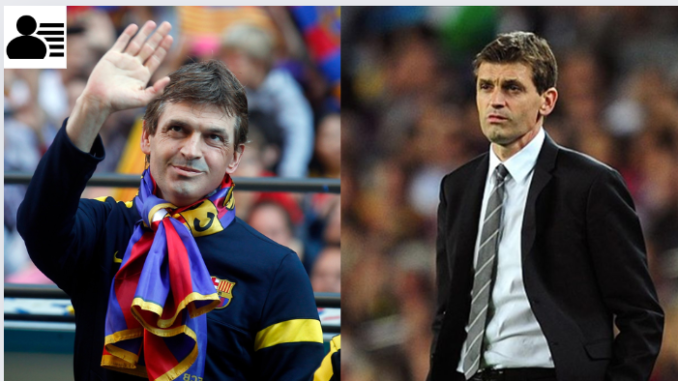
Tito Vilanova Cause Of Death – Tito Vilanova, born Francesc “Tito” Vilanova Bayó on September 17, 1968, in Bellcaire d’Empordà, Spain, was a notable Spanish professional football player and manager. Vilanova is remembered for his contributions to football both on and off the field, particularly his work with FC Barcelona. Despite a playing career limited to 26 La Liga matches over three seasons, Vilanova’s influence grew significantly during his coaching career. Tragically, his life was cut short by throat cancer at the age of 45.
Early Life and Playing Career
Tito Vilanova began his football journey in his hometown of Bellcaire d’Empordà. His professional playing career, although modest, was significant. Vilanova played as a central midfielder and spent most of his playing days with Celta de Vigo. His career spanned three seasons in La Liga, where he made 26 appearances. Though he did not become a household name as a player, his understanding of the game laid the foundation for his future successes as a coach.
Tito Vilanova Cause Of Death
Tito Vilanova’s battle with throat cancer was a difficult and public one. Despite undergoing multiple treatments, his condition worsened. On April 25, 2014, Tito Vilanova passed away at the age of 45, leaving the football world in mourning. His death was a significant loss to the football community, especially those who knew him personally and professionally.
Transition to Coaching
After retiring from professional football, Vilanova transitioned into coaching. His most notable work came as an assistant coach at FC Barcelona under the renowned Pep Guardiola. During this period, Barcelona experienced immense success, winning 14 titles, including La Liga, the UEFA Champions League, and the FIFA Club World Cup. Vilanova’s tactical acumen and ability to manage players were integral to Barcelona’s dominance.
Ascension to Barcelona’s Head Coach
In 2012, Tito Vilanova was appointed as the head coach of Barcelona, succeeding Pep Guardiola. His tenure as the first-team manager was marked by both triumph and tragedy. Under his leadership, Barcelona won La Liga in the 2012-2013 season, setting a record with 100 points. Vilanova’s emphasis on attacking football and his ability to inspire players were evident throughout the season.
However, Vilanova’s health began to deteriorate during his time as head coach. He was diagnosed with throat cancer, a condition that ultimately forced him to step down in July 2013. Despite his brief tenure, Vilanova left an indelible mark on Barcelona and its players.
Tito Vilanova Legacy
Tito Vilanova’s legacy extends beyond his accomplishments on the field. He is remembered for his resilience, humility, and dedication to football. Vilanova’s story is one of perseverance, from his days as a player to his rise as a successful coach. His battle with cancer and his untimely death brought attention to the disease, inspiring many with his courage.
FAQs
Who is Tito Vilanova? Tito Vilanova was a Spanish football player and manager, known for his work with FC Barcelona. He played as a central midfielder and later became a successful coach.
What was Tito Vilanova’s cause of death? Tito Vilanova died from throat cancer.
How old was Tito Vilanova when he died? Tito Vilanova was 45 years old at the time of his death.
Did Tito Vilanova smoke? It has not been disclosed whether Tito Vilanova smoked or not.
What were Tito Vilanova’s achievements as a coach? As a coach, Tito Vilanova helped Barcelona win numerous titles, including La Liga and the UEFA Champions League, during his time as an assistant and head coach.
How did Tito Vilanova contribute to Barcelona’s success? Vilanova’s tactical knowledge and player management skills were crucial in Barcelona’s success during his tenure as an assistant coach and later as the head coach.
Conclusion
Tito Vilanova’s life and career were characterized by his passion for football, his tactical brilliance, and his inspirational fight against cancer. Though his life was tragically short, his impact on the football world endures. Vilanova’s story is a testament to the power of resilience and dedication, leaving a lasting legacy in the hearts of football fans worldwide.

Leave a Reply